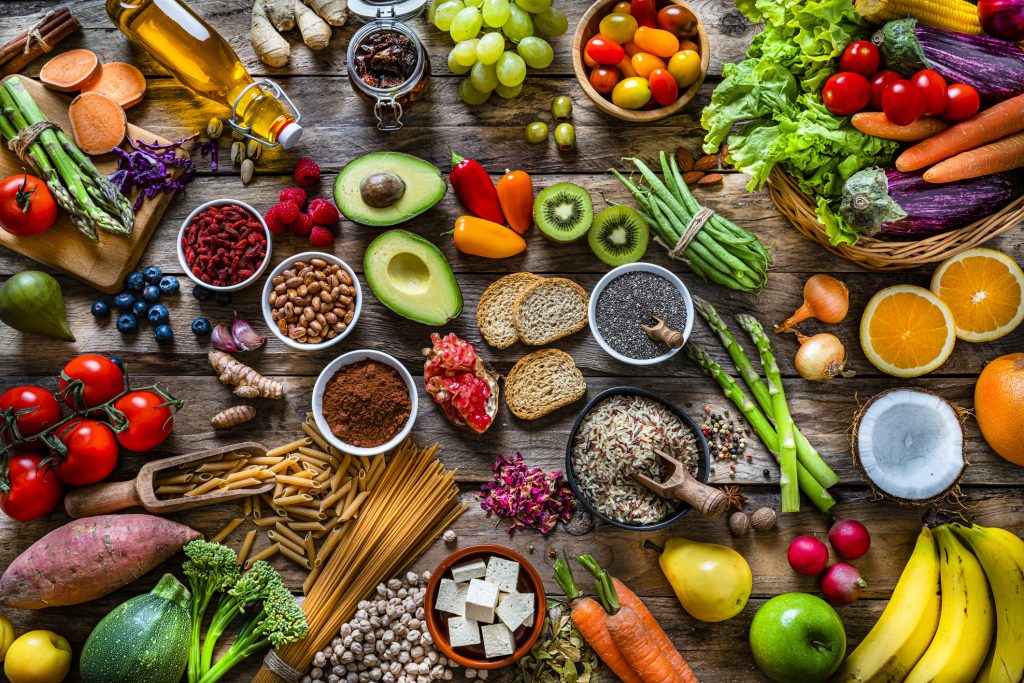Having a healthy diet is key to wellness as it will provide your body with all the nutrients it needs for optimal physical and mental performance. Our body needs a lot of energy daily to function properly and this energy it’s produced based on the nutrients that we provide to our body.
However, it could be a bit difficult to maintain a healthy diet as we may face obstacles such as lack of financial resources to obtain the food that we need or not having enough time to prepare our meals which then lead us to rely on fast food and processed food.
While fast and processed food sounds like an ideal solution, it is important to keep in mind that this type of food normally does not provide the nutrients and vitamins that the body needs. Instead, they provide high levels of trans and saturated fats, and usually also contain high levels of salt or sugar.
According to the World Health Organization, consuming fast and processed food too often can eventually lead to health conditions such as heart conditions, diabetes, high cholesterol, high blood pressure, and even cancer. Food that lacks nutrients and vitamins directly affects our production of energy as it does not provide the body with the nutrients it needs for optimal energy production.
 Did you know? Besides serotonin, the gut microbiota also produces other neurotransmitters like dopamine, histamine, and norepinephrine, among others, which also contribute to good mental health and a healthy immune system.
Did you know? Besides serotonin, the gut microbiota also produces other neurotransmitters like dopamine, histamine, and norepinephrine, among others, which also contribute to good mental health and a healthy immune system.Additional to physical health conditions, a recent study published by the Royal Societe Open Science, suggests that our diet can also directly affect our mental health as the digestive system is in constant communication with the brain through the vagus nerve.
Using complex processes, the microorganisms that live in our intestines known as “gut microbiota” also generate several neurotransmitters including serotonin, which have been proven to impact our mental health in both positive and negative ways. These neurotransmitters can also be generated based on the food we eat, therefore, a balanced and healthy diet contributes to good mental health. It is estimated that up to 80% of the serotonin supply is produced and accumulated in the intestines, and low levels of this neurotransmitter are associated with depression and anxiety.
How can I improve my diet?
The first step should be reducing the intake of food that does not provide sufficient nutrients to your body. You can start with small steps like reducing the intake of fast and processed food gradually so that you get used to more nutritious food. You can also set goals like eating more fruits and vegetables on specific days. For example, eating more fruits and vegetables two or three days a week and then slowly increasing the intake of nutritious food.
How many servings of fruits and vegetables should I have for a balanced and healthy diet?
The truth is, there is no specific answer to this question as this will depend on several factors such as your age, weight, daily habits, and also the level of physical activity you perform. It is also very important to consider your current health condition before making big changes to your diet. If you suffer from any health condition, it will be best to visit a doctor who can guide you on how to transition to a healthy diet based on your personal needs.
That being said, different sources provide different recommendations when it comes to a balanced diet. For your reference, the “MyPlate” program from the U.S. Department of Agriculture recommends that half of your plate should be vegetables or fruits, while the American Heart Association (AHA) recommends having two and a half servings of vegetables, and two servings of fruit daily. It is also important that we eat cereals and grains as they also provide nutrients and vitamins the body needs. The AHA recommends having at least six servings of cereals and grains daily. Lastly, you would want to also include protein in your diet and the AHA recommends five and a half-ounce equivalents of protein per day. You can view these recommendations in more detail and other helpful information here.
For your convenience, you can also find a few recommendations to improve your diet and how to administer your financial resources and time in a more efficient manner below:
1. Make a budget for food – Making a budget for food will be of great help when acquiring all the food that you need. As mentioned, a balanced diet should include fruits, vegetables, cereals and grains, and protein, so you would want to make sure to put all of these items on your shopping list.
2. Get your food from local markets and stores – You will normally find lower prices at local markets and stores, and the food you can get at these places might be of higher quality.
3. Plan weekly menus/”Meal Prep” – If you don’t have enough time to cook daily, planning a weekly menu also known as “Meal Prep” will be really helpful for you. You can make a list of all the dishes you would like to eat during the week and you can cook them all at once. Then, you can store your food in the fridge and heat it when you’re ready to eat. This will save you a lot of time as you would not need to be stuck in the kitchen every day.
4. Create your own recipes – A balanced and healthy diet does not have to be boring! You set the limits in your own kitchen so you have the flexibility to create your own recipes using the ingredients you like the most. This way, you will be getting used to healthy delicious food.
5. Find social programs – Some countries offer financial support or food programs from which you can benefit if your financial resources are limited. This will depend on your country of residence and you will need to contact the office or department in charge of these programs for further information.
As explained in this post, a balanced and healthy diet can be of great benefit to both our physical and mental health, so it is important to try your best to provide your body with the nutrients it needs. This will also help you to feel more energetic and focus on your personal, professional, and educational goals.



This article provides a thorough overview of how our unhealthy diet can affect our physical and mental health. It clearly outlines the various ways that the food we consume can have a positive or negative effect on our overall health. It also delves into the importance of a balanced diet, which is key to maintaining good physical and mental health. Overall, this is a very informative piece of writing and provides a great insight into the relationship between our diet and health.